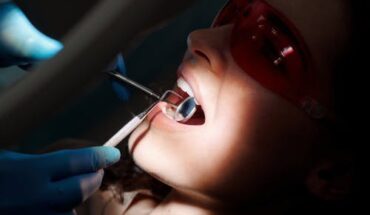The Vicious Cycle of Smoking and Oral Health
Smoking is a well-known health hazard, linked to numerous systemic conditions like lung cancer, heart disease, and chronic obstructive pulmonary disease. However, its impact on oral health is equally concerning and often underestimated. The harmful chemicals in tobacco can wreak havoc on your teeth, gums, and overall oral cavity, leading to a downward spiral of dental problems.
For smokers, the risk of developing oral health issues is significantly higher than for non-smokers. Smoking can lead to gum diseases, tooth decay, and even tooth loss, further reinforcing the need for dental care. Understanding the repercussions of smoking on oral health is crucial in taking preventative steps. With the potential need for removal of a tooth due to decay or other issues, the importance of addressing smoking-related dental health cannot be overstated.
The Consequences on Gums and Teeth
One of the primary consequences of smoking is the increased risk of periodontal disease. The toxins in tobacco smoke interfere with the normal function of gum tissue cells, making it harder for the tissues to repair themselves. This leads to a breakdown of the connections between teeth and gums, creating pockets where bacteria can thrive.
Additionally, smoking reduces blood flow to the gums, impairing oxygen and nutrient delivery, which are vital for healing. This can escalate minor gum irritations into severe periodontal diseases. In time, tooth decay might progress to needing a root canal treatment in Meeker or elsewhere.
Staining and Aesthetic Concerns
Beyond the health risks, smoking also affects the aesthetic appeal of your smile. Tar and nicotine in cigarettes cause your teeth to stain over time, turning them yellow or brown. This discoloration can be stubborn and challenging to remove with regular brushing, often necessitating professional teeth whitening treatments.
Cigarette smoke is a significant contributor to bad breath, another undesirable effect that can affect personal and professional interactions. Persistent bad breath, or halitosis, can stem from the accumulation of tobacco particles in the mouth, creating an odor that is difficult to eliminate without quitting smoking.
Impact on Oral Cancer Risks
Perhaps the most severe risk that smoking poses to oral health is the increased likelihood of oral cancer. Tobacco use significantly raises the odds of developing cancers of the mouth, throat, and esophagus. Smokers are six times more likely than non-smokers to develop these types of cancers.
Oral cancer often starts as a small, unnoticed lesion, which if left untreated, can grow into a life-threatening condition. It underscores the importance of regular check-ups with a local dentist nearest to you for early detection and intervention.
Healing Impediments for Smokers
For smokers, the healing process is notably compromised. Nicotine constricts blood vessels, reducing blood flow which is crucial for healing tissues. This is particularly problematic after dental procedures like tooth extractions or periodontal treatments. Delayed healing can lead to complications such as infections, which could further complicate dental treatment plans.
The compromised healing also affects the success rate of dental surgeries, including implants. Smokers are at a higher risk of implant failure, root canal failures, and complications in other dental procedures compared to non-smokers.
Motivating Change for Better Oral Health
Quitting smoking is the most effective step towards better oral health. Not only does it reduce the risk of oral and systemic diseases, but it also enhances the overall healing capability of oral tissues. Former smokers can experience improvements in oral health soon after quitting, including better gum health, reduced oral cancer risks, and enhanced blood flow to oral tissues.
Seeking support from dental health professionals can be pivotal in smoking cessation. Dentists can provide resources and support to promote healthy lifestyle changes. Additionally, regular visits to a local dentist nearest for check-ups can help management of existing conditions and prevention of future issues.
Exploring Alternatives and Preventative Care
If quitting smoking seems daunting, consider gradually reducing the number of cigarettes smoked per day as the first step. Switching to nicotine replacement therapies or consulting a healthcare professional for personalized quitting strategies can also be beneficial.
Furthermore, establishing a robust oral hygiene routine that includes brushing twice daily, flossing, and using mouthwash can help combat some of the adverse effects of smoking. Regular dental check-ups and professional cleanings can help manage and mitigate the risks posed by smoking.
The Journey to Healthy Smiles
The journey to a healthy smile begins with making informed decisions and taking proactive steps towards improving your oral health. While the effects of smoking on oral health are undeniably serious, with determination and the right support, you can prevent and overcome the challenges.
Engage with healthcare providers, use available resources, and commit to lifestyle changes that promote not only a beautiful smile but also overall well-being. The reduction in smoking-related oral issues, alongside improved self-esteem from a healthier smile, can make the journey worthwhile and rewarding.






